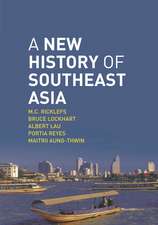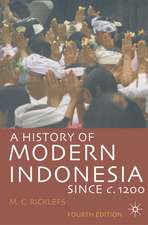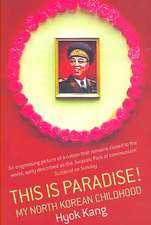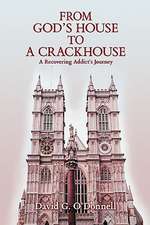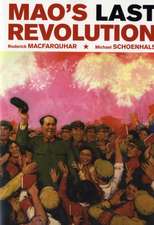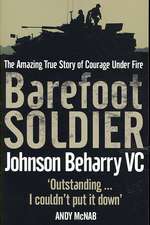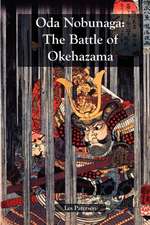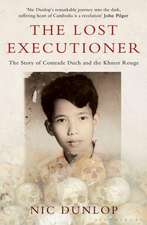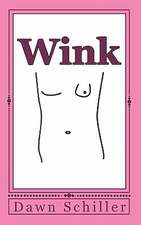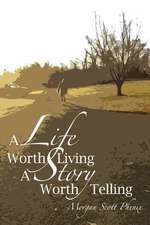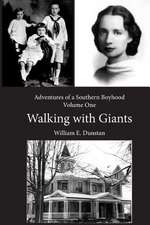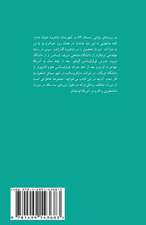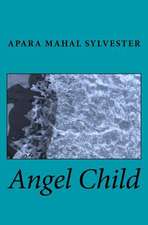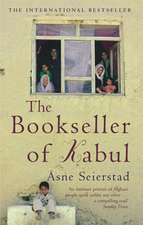Wave
Autor Sonali Deraniyagalaen Limba Engleză Paperback – 30 dec 2013
Vezi toate premiile Carte premiată
National Book Critics Circle Award (2013), Discover Great New Writers (2013)
| Toate formatele și edițiile | Preț | Express |
|---|---|---|
| Paperback (2) | 53.37 lei 3-5 săpt. | +26.87 lei 7-11 zile |
| Little Brown Book Group – 12 mar 2013 | 53.37 lei 3-5 săpt. | +26.87 lei 7-11 zile |
| VINTAGE BOOKS – 30 dec 2013 | 96.11 lei 3-5 săpt. |
Preț: 96.11 lei
Nou
Puncte Express: 144
Preț estimativ în valută:
18.39€ • 19.97$ • 15.45£
18.39€ • 19.97$ • 15.45£
Carte disponibilă
Livrare economică 01-15 aprilie
Preluare comenzi: 021 569.72.76
Specificații
ISBN-13: 9780345804310
ISBN-10: 0345804317
Pagini: 240
Dimensiuni: 135 x 202 x 18 mm
Greutate: 0.24 kg
Editura: VINTAGE BOOKS
ISBN-10: 0345804317
Pagini: 240
Dimensiuni: 135 x 202 x 18 mm
Greutate: 0.24 kg
Editura: VINTAGE BOOKS
Recenzii
“The most exceptional book about grief I’ve ever read . . . I didn’t feel as if I was going to cry while reading Wave. I felt as if my heart might stop . . . Deraniyagala has fearlessly delivered on memoir’s greatest promise: to tell it like it is, no matter the cost. The result is an unforgettable book that isn’t only as unsparing as they come, but also defiantly flooded with light . . . Extraordinary.” --Cheryl Strayed, New York Times Book Review
“An amazing, beautiful book.” --Joan Didion, author of The Year of Magical Thinking
“Radiant . . . The extremity of Deraniyagala’s story seizes the attention, but it’s the beauty of how she expresses it that makes it indelible . . . [She is] a writer of such extraordinary gifts . . . Wave is a small, slender book, but it is enormous on the inside.” —Salon
“Heart-stopping . . . A stunning memoir of grief . . . Wave contains some of the best, most affecting writing about love and family that I have ever read . . . It is also wholly sui generis. I couldn’t recommend it more highly.” --Sunday Times (UK)
“Although for much of the book, we are privileged to be with her as she conjures and re-conjures her joyous family, what emerges from this wizardry most clearly is, of course, Deraniyagala herself--carrying within her present life another gorgeously remembered one.” --San Francisco Chronicle
“Unforgettable . . . It is a miracle Deraniyagala lived. The fact that she could write such a memoir, bringing those she loved to life so completely that they breathe on the page, is itself a miracle.” --Vanity Fair
“Wave is a haunting chronicle of love and horrifying loss. The heartfelt writing manages to render the absence of the loved ones--the void, and the pain of it--in such a beautiful way that what was lost emerges as a new life form, one whose flesh and sinew are memory, sorrow, and undying love.” --Abraham Verghese, author of Cutting for Stone
“Courageous, truthful and, above all, generous . . . What amazed me most about the book is what good company it is. Deraniyagala is accepting and tender in her record of grief . . . Wave is in fact full of persisting life.” --Globe & Mail (Canada)
“Immeasurably potent . . . Relentless in its explication of grief, this massively courageous, tenaciously unsentimental chronicle of unthinkable loss and incremental recovery explodes--and then expands--our notion of what love really means.” --More magazine
“An indelible and unique story of loss and resolution written with breathtaking refinement and courage . . . In rinsed-clear language, Deraniyagala describes her ordeal, surreal rescue, and deep shock, attaining a Didionesque clarity and power. We hold tight to every exquisite sentence as, with astounding candor and precision, she tracks subsequent waves of grief . . . But here, too, are sustaining tides of memories that enable her to vividly, even joyfully, portray her loved ones.” --Booklist
“Out of unimaginable loss comes an unimaginably powerful book. Wave is unflinching as it charts the depths of grief, but it's also, miraculously, a beautifully detailed meditation on the essence of happiness. I came away from this stunning book with a new appreciation of life’s daily gifts. I urge you to read Wave. You will not be the same person after you've finished.” --Will Schwalbe, author of The End of Your Life Book Club
“The most powerful and haunting book I have read in years . . . Sonali Deraniyagala has brought back to life in this stunning memoir all those she lost, so much so that we will never forget them or their lives.” --Michael Ondaatje, author of The English Patient
“Both heartbreaking and astonishingly beautiful.” --New York Post
“A devastating but ultimately redemptive memoir . . . The craft and control reflect an exceptional literary command . . . Excellent. Reading Deraniyagala’s account proves almost as cathartic as writing it must have been.” --Kirkus Reviews (starred)
“Deraniyagala has written a book teaming with beautiful ruminations on the bittersweetness of memory and the precariousness of life.” --Publishers Weekly (starred review)
“Rarely are we given a story of such narrative force and poetic simplicity . . . Being spared, Deraniyagala seems doomed to spare herself nothing. Wave is a beautiful offering to readers. Bravissima.” --Mary Karr, author of Lit
“In short, declarative, unbearable sentences, Deraniyagala takes us through her grief like a tour guide into a country no one chooses to visit. . . . Art as powerful as a planetary vibration.” --Joanna Connors, The Plain Dealer
“Beautiful and ravaging . . . faultless prose.” --Laura Wadley, The Daily Herald
“As beautifully written as it is raw, Sonali Deraniyagala’s Wave is an impossible book to forget because it exists on the razor’s edge between before and after.” --Miwa Messer, Everyday Ebook
“An amazing, beautiful book.” --Joan Didion, author of The Year of Magical Thinking
“Radiant . . . The extremity of Deraniyagala’s story seizes the attention, but it’s the beauty of how she expresses it that makes it indelible . . . [She is] a writer of such extraordinary gifts . . . Wave is a small, slender book, but it is enormous on the inside.” —Salon
“Heart-stopping . . . A stunning memoir of grief . . . Wave contains some of the best, most affecting writing about love and family that I have ever read . . . It is also wholly sui generis. I couldn’t recommend it more highly.” --Sunday Times (UK)
“Although for much of the book, we are privileged to be with her as she conjures and re-conjures her joyous family, what emerges from this wizardry most clearly is, of course, Deraniyagala herself--carrying within her present life another gorgeously remembered one.” --San Francisco Chronicle
“Unforgettable . . . It is a miracle Deraniyagala lived. The fact that she could write such a memoir, bringing those she loved to life so completely that they breathe on the page, is itself a miracle.” --Vanity Fair
“Wave is a haunting chronicle of love and horrifying loss. The heartfelt writing manages to render the absence of the loved ones--the void, and the pain of it--in such a beautiful way that what was lost emerges as a new life form, one whose flesh and sinew are memory, sorrow, and undying love.” --Abraham Verghese, author of Cutting for Stone
“Courageous, truthful and, above all, generous . . . What amazed me most about the book is what good company it is. Deraniyagala is accepting and tender in her record of grief . . . Wave is in fact full of persisting life.” --Globe & Mail (Canada)
“Immeasurably potent . . . Relentless in its explication of grief, this massively courageous, tenaciously unsentimental chronicle of unthinkable loss and incremental recovery explodes--and then expands--our notion of what love really means.” --More magazine
“An indelible and unique story of loss and resolution written with breathtaking refinement and courage . . . In rinsed-clear language, Deraniyagala describes her ordeal, surreal rescue, and deep shock, attaining a Didionesque clarity and power. We hold tight to every exquisite sentence as, with astounding candor and precision, she tracks subsequent waves of grief . . . But here, too, are sustaining tides of memories that enable her to vividly, even joyfully, portray her loved ones.” --Booklist
“Out of unimaginable loss comes an unimaginably powerful book. Wave is unflinching as it charts the depths of grief, but it's also, miraculously, a beautifully detailed meditation on the essence of happiness. I came away from this stunning book with a new appreciation of life’s daily gifts. I urge you to read Wave. You will not be the same person after you've finished.” --Will Schwalbe, author of The End of Your Life Book Club
“The most powerful and haunting book I have read in years . . . Sonali Deraniyagala has brought back to life in this stunning memoir all those she lost, so much so that we will never forget them or their lives.” --Michael Ondaatje, author of The English Patient
“Both heartbreaking and astonishingly beautiful.” --New York Post
“A devastating but ultimately redemptive memoir . . . The craft and control reflect an exceptional literary command . . . Excellent. Reading Deraniyagala’s account proves almost as cathartic as writing it must have been.” --Kirkus Reviews (starred)
“Deraniyagala has written a book teaming with beautiful ruminations on the bittersweetness of memory and the precariousness of life.” --Publishers Weekly (starred review)
“Rarely are we given a story of such narrative force and poetic simplicity . . . Being spared, Deraniyagala seems doomed to spare herself nothing. Wave is a beautiful offering to readers. Bravissima.” --Mary Karr, author of Lit
“In short, declarative, unbearable sentences, Deraniyagala takes us through her grief like a tour guide into a country no one chooses to visit. . . . Art as powerful as a planetary vibration.” --Joanna Connors, The Plain Dealer
“Beautiful and ravaging . . . faultless prose.” --Laura Wadley, The Daily Herald
“As beautifully written as it is raw, Sonali Deraniyagala’s Wave is an impossible book to forget because it exists on the razor’s edge between before and after.” --Miwa Messer, Everyday Ebook
Notă biografică
Sonali Deraniyagala teaches in the Department of Economics at the School of Oriental and African Studies, University of London. She is currently a visiting research scholar at the School of International and Public Affairs at Columbia University, New York, working on issues of economic development, including post-disaster recovery.
Extras
sri lanka, julyߝ-december 2005
Someone had removed the brass plate with my father’s name on it from the gray front wall. It had his name etched in black italics. I sat in the passenger seat of my friend Mary--Anne’s car, my eyes clinging to the holes in the wall where that brass plate was once nailed.
This had been my parents’ home in Colombo for some thirty--five years, and my childhood home. For my sons it was their home in Sri Lanka. They were giddy with excitement when we visited every summer and Christmas. Vik took his first steps here, and Malli, when younger, called the house “Sri Lanka.” And in our last year, 2004, when Steve and I had sabbaticals from our jobs and the four of us spent nine months in Colombo until September, this house was the hub of our children’s lives.
This was where we were to return to on the afternoon of the twenty--sixth of December. My mother had already given Saroja, our cook, the menu for dinner. This was where they didn’t come back to. Now, six months after the wave, I dared to set eyes on this house.
I was wary as I sat in Mary--Anne’s car, which was parked by our front wall. I didn’t want to look around. I was afraid of seeing too much. But I couldn’t help myself, I peeked.
Apart for the now nameless wall, the outside of the house had not changed. The tall iron gates still had spikes on top to keep burglars out. The rail on the balcony was white and safe. The mango tree I was parked under was the same mango tree that gave me an allergic reaction when it flowered, that sickly tree, dark blotches on its leaves. I noticed some small black stones on the driveway, and I remembered. Vik would juggle with these stones when he waited out here for the New Lanka Caterers van to come by selling kimbula paan—-sugarcoated bread rolls shaped as crocodiles.
It was a humid, sticky afternoon, and Mary--Anne rolled down the car windows. From its perch on a nearby telephone post, a bulbul trilled. And I recalled the pair of red--vented bulbuls that nested in the lamp that hung in the car porch, just over the front wall. In the hollow of the glass lampshade, there would be a nest built with dried twigs and leaves and even a green drinking straw. The boys were spellbound by the arrival of fidgety chicks, still part covered in pale red shell. They watched the first flutter from that lamp many times, shooing off the mob of crows that rallied on the wall waiting for an unready chick to drop to the ground. Now I could see the two of them, placing a chair under the lamp to stand on and get a better look. Shoving each other off that chair. My turn now. I wanna see the baby bird. Get off.
A phone rang indoors. It made me shiver. It was the same phone, the same ring. From my father’s study on the other side of this wall, the phone kept ringing, no one picked it up. Now I could hear my father push back his chair to go tell my mother that it is her sister calling, again. I could hear him open the door of his study. A bunch of keys always dangled on that door. They tapped against the door’s glass panel when it was opened or shut. I could hear them jingle.
In the past months, I’d been unable to focus on the death of my parents. I’d held back thoughts of them, so utterly bewildered was I by the loss of my boys and Steve. Now, as I lingered outside this house, my parents emerged, a little.
Then I saw through the branches of the mango tree that the windows of the bedroom upstairs were closed. That was my bedroom when I was a child. Then Vik and Malli slept there when we visited. Getting them to bed in that room took forever. They’d call to my mother to plead for yet another fizzy drink, and she’d gladly oblige. They’d squabble, trying to stretch a too--small mosquito net over two adjacent beds, and argue about how dark the room should be. Vik wanted some light, Malli did not. He’d say, “Don’t be scared, Vik. It’s good when it’s all really black. You can see your dreams better.”
I looked away from that upstairs bedroom. I stared at the empty space on the wall where the nameplate used to be. They must be still in that room, surely. It’s impossible they are not.
I didn’t go inside. Mary--Anne squeezed my hand as she started up the car to drive off. And I remembered how, on our last morning here, the day we left for Yala, I’d woken before the boys and packed their Christmas presents in two red bags. Vik had written his name on those bags with a black marker pen, one of those permanent ones.
I went back to the house at night because I could not bear to step inside in daylight. The tall metal gates shut, not partly open as they used to be. All the rooms in darkness, windows closed. The house was hushed, shuddering in disbelief. A solitary light burned on the balcony, another in the car porch. I glanced quickly at the lamp in the porch, some scraps of a nest, no birds. The large wooden front door rumbled back on its rollers. I kept my sandals on as I walked in, not kicking them off by the tall, bronze--framed mirror on the wall below
the stairs, as I used to.
As I walked through those front doors, the huge silence of the house ripped through me. I had tried to come inside here on many nights before but hadn’t made it past the gates. Damn you, I kicked those metal gates, all those gin and tonics I’d knocked back powering my legs. Damn this house. Damn everything.
The house I entered was transformed, empty and vast, bereft. Just a few pieces of furniture remained, repositioned, displaced. The floors now bare, no rugs to absorb my footsteps. The walls gleamed with new paint that concealed even the impressions left by the mirrors, the paintings, and old blue and white porcelain plates that had been taken down.
I didn’t want this barrenness. I yearned for the house as it was, as we left it. I wanted to sit on every couch, on every chair they sat on, and maybe some warmth would seep into me. I wanted wardrobes full of their clothes, a mixed--up mound of the boys’ underwear in ours, a neat stack of my father’s white handkerchiefs in his. I wished I could pick up a book Vik had been reading from the table by our bed, and turn to the page he’d folded to mark where he had stopped. I wanted the green roll--on stick of mosquito repellant on that table, drying out because we had left the cap off. But none of this could be. Broken and bewildered, my brother had the house cleared and packed away, painted and polished, all in the first month or two after the wave. For him, that was the practical thing to do, to impose order on the unfathomable, perhaps. I had been collapsed on a bed in my aunt’s house at the time and could not contemplate returning to my parents’ house. I quaked at the very thought of it.
Now, in this stillness, sterile with the odor of varnish and paint, I hunted traces of us. A pencil stub with the end chewed off perhaps, a scrunched--up grocery bill, a hair floating across the floor, a squiggle made with a pen on a wall, a scrape of a fork on a table. But there was nothing. No dent,
no chipped paint on the wooden banister along the stairs where a ball had been lobbed too hard. The drops of crimson nail polish on the white table in my parents’ bedroom had vanished. The chocolate smears on the sofa bleached out. Surely this cannot be. There must be some atom of our life hidden here, lingering in this quiet somewhere.
And then I saw it. The mat. Just a small square black rubber mat with little round bristles, unremarkable. But I was transfixed. This was the mat Vik wiped his muddy feet on when he bounded in from the garden. The very same mat. It was inside the house now, tossed to the side by the stairs, not on the step leading out to the garden as it should be. No one had bothered to dispose of it, no one had bothered to clean it up. The gaps between the bristles were flecked with scraps of disintegrating dried grass, grains of sand, a morsel of dead beetle that the ants had tired of. Was that an imprint of Vikram’s foot? Did that speck of dirt come off his heel? This mat and suddenly the house was not so lifeless, pulsing faintly, ever so slightly charged with their presence. I could almost hear them, turning the page of a book and shifting softly on a rattan armchair, crunching a roasted cashew nut and dropping another on the floor, slipping an ice cube into a glass and placing the tongs back on the table.
I walked into the hollow that had been my father’s office. There was no large desk heaving with piles of legal briefs, those blue and beige folders frayed at the edges, sometimes tied up with a piece of thin ribbon. The wooden shelves that stretched from the floor to the ceiling on two walls were bare, the top ones no longer warped by the weight of too many books. No antique maps of Sri Lanka hung above the desk. One of these maps, from the sixteenth century, showed the island as a rectilinear pentagon, not unlike a small child’s lopsided drawing of a house, and in the middle, along with a few mountains and rivers, the cartographer had etched a colorful elephant with ornate anklets on all its feet, perhaps to compensate for the lack of geographical detail.
As I stood in the dark of that room, fragments of our last days here kept flaring up, unbidden. Malli tying clusters of balloons on the frangipani trees in the back garden because we were having friends to dinner, and what’s a party without balloons. My mother teaching Vikram to play “Silent Night” on the piano, and his deliciously dimpled smile as he changes the chords and presses hard on the pedal, making the tune unrecognizable. Steve wearing that burnt--orange shirt the night we had the party, the shirt I’d bought him only that day, a tad more flamboyant than his usual choice. All of this now sharply in focus just by being within these walls, my vapor--filmed mind clearing for a while. I looked out the window and saw the lime tree in the front garden. The tangy smell of those lime leaves, when they are torn into small pieces, I know that so well. Familiar insect noises filled the outside, crickets rubbing wings together, cicadas vibrating tiny abdominal membranes. A few moments of quiescence. Home.
Upstairs in our bedroom, the two double beds, no sheets or pillows, naked. The wardrobe empty, I traced inside the shelves with my fingers, and there was no dust. In the corner of a drawer, I found some seashells, small cowries that Malli and I gathered on the beach, feeling their pearly smoothness under our thumbs. He called them “favorites,” both his and mine. Drifting in and out of the rooms in a daze, I looked into the small shrine room at the top of the stairs. On the floor, under the Buddha and Ganesh statues, was a set of Vikram’s cricket stumps, the tallest ones he had, Steve would tap them into the ground with his bat in the middle of the athletics track of the Sports Ministry playing fields every evening. I picked up one of the stumps, staring at its pointed end that was darkened with soil, the wetness of the earth still clinging to the wood, almost. I took it to our bedroom. I struck at the bed. I stabbed the mattress with the muddied pointed end, over and over, harder and harder, until a tear appeared, and again to make the hole deeper and again to make another gash and again to join up all the gashes. The four of us, we slept here in all our innocence. That’ll teach us.
Dust, rubble, shards of glass. This was the hotel. It had been flattened. There were no walls standing, it was as though they’d been sliced off the floors. Only those clay--tiled floors remained, large footprints of rooms, thin corridors stretching out in all directions. Fallen trees were everywhere, the surrounding forest had flown apart. As if there’d been a wildfire, all the trees were charred. A signboard fallen in the dirt said yala safari beach hotel. I stumbled about this shattered landscape.
I stubbed my toe on this ruin.
This was my first trip back to Yala. I went with Steve’s father, Peter, and his sister Jane. On the two-hundred-mile drive from Colombo, we had to stop often, so I could vomit.
The wind was fierce that day we went back, it flung sand into our faces. A strangely quiet wind, though, bereft of the rustling and shaking of trees. It was midday, and no shelter from the seething sun. The sea eagles that had thrilled Vik, they were still there. Bold in this desolation, they sailed low, sudden shadows striking the bare ground. Eagles without Vik. I didn’t look up.
I couldn’t make this real. This wasteland. What has this got to do with me? I thought. This was where I was last with my family? Our wine chilled in a bucket here on Christmas Eve? I couldn’t believe any of it, for I couldn’t grasp their extinction.
I had learned some facts by now, so I recited them in my head. The wave was more than thirty feet high here. It moved through the land at twenty--five miles an hour. It charged inland for more than two miles, then went back into the ocean. All that I saw around me had been submerged. I told myself this over and over. Understanding nothing.
I knew the geography of this hotel so well—-but now I was directionless. Where do I go? What did I come here to see? Then I remembered the rock. There was a large rock here on the bank of the lagoon that is to the side of the hotel. A black, peaceful rock that we’d often sit on at dusk. Every year we took photos of the boys on that rock. I had to search awhile before I saw it now, it wasn’t where it used to be. It was in the middle of the lagoon. Had it moved, or had the lagoon expanded? I couldn’t tell. But with that rock I found my bearings. These concrete pillars held up the dining room. Over there, behind that mound of crushed concrete, was the pool. The rooms we stayed in were at the farthest end, near to the jungle, and at night we heard wild boar steal out of the scrub.
I showed Steve’s father and sister those rooms. They stared silently at the floor of the bathroom, where Steve was when I saw the wave. I retraced the path we took as we ran from the water. I showed them the driveway where we climbed into the jeep. We stood on that gravel awhile. I kicked up red dust.
I noticed objects wedged in the top branches of a large acacia, one of the few trees still upright. An air--conditioning unit, a pink mosquito net, the number plate of a car. And in the rubble on the ground, I could see a Japanese magazine now dried to a curl, a room--service menu, a broken wineglass, a black high--heeled shoe. A child’s red underpants. My eyes rushed past this. I didn’t want to find anything that was ours.
I walked down to the ocean alone. It was June, when the surf here is wild. I stared. These waves, this close. I stood there taunting the sea, our killer. Come on then. Why don’t you rise now? Higher, higher. Swallow me up.
When I came back to my father--in--law, he was holding a sheet of paper, peering at it. He showed it to me. He told me he’d stood in that wind and spoken a few words into the air, to Steve and the boys. That’s when something fluttered by his foot. He took no notice. It was just a scrap of paper, mostly covered in sand, some old newspaper, he thought. With each gust of wind, it kept flapping. So he dug it out. It was a laminated page, A4 size. Could this be something of Steve’s? he asked.
I looked. And I looked. My blood jumped. For it was.
It was the back cover of a research report written by Steve and a colleague. A report on “using random assignment to evaluate employment programs,” published in London in 2003. The ISSN number was still clear on the bottom left. Except for a small tear in the middle, this page was intact. It had survived the wave? And the monsoon in the months after? And this relentless wind? It appeared right by Steve’s father’s foot? It rustled? Random assignment. I remembered the many studies that Steve had been working on, these two words absurd in this madness now. Had Steve been reading this on the toilet when I shouted to him? Was this one of the last things touched by his hands? I clasped the paper to my chest and sobbed. My father-in-law stood next to me.
“Cry all you want, sweetheart.”
After finding that page, I was no longer afraid of chancing upon our belongings amid this rubble. Now I wanted to discover more. I kept going back to Yala, obsessively, over the next months. I scavenged the debris of the hotel. I searched, dug about, scratched my arms on rusted metal. I pounced on fragments of plastic, did this come from one of our toys? Is this Malli’s sock? What I really wanted was to find Crazy Crow, the big glove puppet with unruly black feathers that we had given Malli for Christmas, the day before the wave. When he tore open the wrapping and saw it, how he’d lit up.
I followed the course of the wave inland, time and again. In a trance, I scrambled through the uprooted scrub. The jungle had been devoured by the water, vast tracts of it were now covered in bone--white sea sand that had been swept in by the wave. I ignored danger and walked far into the forest, there were wild animals—elephants, leopard, bear. I lied to my unsuspecting friends from London who sometimes came with me. “Are you sure this is safe?” “Yeah, course it is, come on.”
Nothing was normal here, and that I liked. Here, in this ravaged landscape, I didn’t have to shrink from everyday details that were no longer ours. The shop we bought hot bread from, a blue car, a basketball. My surroundings were as deformed as I was. I belonged here.
I kept returning over the next months and saw the jungle begin to revive. Fresh green shoots sneaked out from under crushed brick. New vines climbed around tilting pillars, and these ruins suddenly looked ancient, like some holy site, a monastery for forest monks, perhaps. Around our rooms a scattering of young ranawara bushes dripped yellow blossoms. And everywhere, on bare ground and between cracks in the floors, tiny pink and white flowers that flourish along the seashore forced their way up. Mini mal, or graveyard flowers, they are called. I resented this renewal. How dare you heal.
Still, I began to experience a new calm. In Colombo my chest cramped continuously, here that pain lessened. I lay on the warm floor of our hotel room as a slow moon scaled above the sea, and I could breathe. At the edge of this floor, there was a small bolt--hole, filled with sand. When I saw the wave coming toward us, I asked Vik to shut the back door. It was into this bolt--hole that he pulled down the lock. Now I traced its rim with my fingers. I cleaned out the sand.
We loved this wilderness. Now slowly it began pressing into me, enticing me to take notice, stirring me from my stupor, just a little. And here I found the nerve to remember. I’d walk on the beach following the footsteps of a solitary peacock, and allow in snatches of us. I could see Vik and Malli catching hermit crabs on this beach. They’d keep the crabs in a large blue basin that they’d landscaped with sand tunnels and ditches, then release them by the water’s edge at the end of the day. Now I could hear the two of them, their innocence twinkling in the late--evening light. “Have I been good, Mum, and will Santa bring me lots of presents?”
I had glimpses of those hours before the wave. Vik jumped on my bed. “Come give me cuddle,” I said. “A Boxing Day cuddle?” he asked, snuggling up. We were to check out of the hotel soon, my mother would have had her vanity case packed. I remembered our last night here, a star--sprawled sky. “Look, Dad, the sky has got chicken pox.” We were sitting outside on the sand, the air was still, from the mayila trees, like a marble skipping on stone, a nightjar called. A fucking nightjar? When I needed a vast pronouncement, of what was looming. The end of my world.
I never did find Crazy Crow. I stopped searching the day I found the shirt Vik wore on our last evening, Christmas night. It was a lime--green cotton shirt. I remembered him fussing that he didn’t want to wear it, it had long sleeves, which he didn’t like. Steve rolled up the sleeves for him. “There, that looks smart.” When I found the shirt, it was under a spiky bush, half--buried in sand. I pulled it out, not knowing what this piece of tattered yellowing fabric was. I dusted off the sand. Those parts of the shirt that had not been bleached by salt water and sun were still bright green. One of the sleeves was still rolled up.
My journeys to Yala became less frequent after I began to harass the Dutch family. By that December, as the first anniversary of the wave approached, I had this new fixation. Strangers had moved into our home in Colombo. A Dutch family. When I was first told the house had been rented to them, I raged at Rajiv for doing it. I was desperate. I screamed. I explained: the house, it anchors me to my children. It tells me they were real. I need to curl up inside it, now and again. But my brother could not comprehend any of this. Why would I want to crawl back into that torturous space? It was so empty of them now. And he didn’t live in Sri Lanka, and I was not in a state to manage it. He had no choice but to rent out the house.
But I smashed my head on the wooden frame of the bed after he told me this. Again and again I bit my arm.
I was spinning in a helpless rage. My boys have been flung out of their home. Other people are in our house, infesting it, erasing Vik and Mal. I want to sit in our garden. I want to pluck on a blade of grass that my boys pounded on. And I can’t? All these months with everyone coaxing me, you have to live, and now I can’t even do this?
On the night I learned about the Dutch family, I drove to our home. I went alone.
I know what I’ll do, I thought. I will smash the car into the front wall. It will burst into flames. I will die. That will be fitting. Killing myself in our home. I’ll do it with an explosion. I’ll do it in style.
This was my first time driving alone since the wave. It was dusk, when traffic is cranky on Colombo roads. I tore through, steering with one hand, overtaking on the wrong side. I played one of Steve’s old The Smiths CDs. My friends from En-gland had brought me a selection of our music, but I couldn’t bear to listen to most of it. I did play The Smiths, though. Hearing them didn’t feel so raw, they were not from our immediate life. It was when we were undergraduates in Cambridge that Steve was possessed by them. Now, in the car, I played “There Is a Light That Never Goes Out” repeatedly. “And if a ten-ton truck kills the both of us, to die by your side, well the pleasure, the privilege is mine.” Ah, this is noble. I swung the car into our street.
When I approached the house, my foot wouldn’t slam on the accelerator pedal as I’d planned. I slowed down just as I did when we lived here. Just as then, I got to the front gates and stopped. The gates were closed. We always kept them ajar at this time, and our security guard would open them when I pulled up. He’d wake from his nap for the glare of the headlights and rush out in disarray, tripping over his open sandals, buttoning his shirt. None of that now. The gates stayed shut.
Someone had removed the brass plate with my father’s name on it from the gray front wall. It had his name etched in black italics. I sat in the passenger seat of my friend Mary--Anne’s car, my eyes clinging to the holes in the wall where that brass plate was once nailed.
This had been my parents’ home in Colombo for some thirty--five years, and my childhood home. For my sons it was their home in Sri Lanka. They were giddy with excitement when we visited every summer and Christmas. Vik took his first steps here, and Malli, when younger, called the house “Sri Lanka.” And in our last year, 2004, when Steve and I had sabbaticals from our jobs and the four of us spent nine months in Colombo until September, this house was the hub of our children’s lives.
This was where we were to return to on the afternoon of the twenty--sixth of December. My mother had already given Saroja, our cook, the menu for dinner. This was where they didn’t come back to. Now, six months after the wave, I dared to set eyes on this house.
I was wary as I sat in Mary--Anne’s car, which was parked by our front wall. I didn’t want to look around. I was afraid of seeing too much. But I couldn’t help myself, I peeked.
Apart for the now nameless wall, the outside of the house had not changed. The tall iron gates still had spikes on top to keep burglars out. The rail on the balcony was white and safe. The mango tree I was parked under was the same mango tree that gave me an allergic reaction when it flowered, that sickly tree, dark blotches on its leaves. I noticed some small black stones on the driveway, and I remembered. Vik would juggle with these stones when he waited out here for the New Lanka Caterers van to come by selling kimbula paan—-sugarcoated bread rolls shaped as crocodiles.
It was a humid, sticky afternoon, and Mary--Anne rolled down the car windows. From its perch on a nearby telephone post, a bulbul trilled. And I recalled the pair of red--vented bulbuls that nested in the lamp that hung in the car porch, just over the front wall. In the hollow of the glass lampshade, there would be a nest built with dried twigs and leaves and even a green drinking straw. The boys were spellbound by the arrival of fidgety chicks, still part covered in pale red shell. They watched the first flutter from that lamp many times, shooing off the mob of crows that rallied on the wall waiting for an unready chick to drop to the ground. Now I could see the two of them, placing a chair under the lamp to stand on and get a better look. Shoving each other off that chair. My turn now. I wanna see the baby bird. Get off.
A phone rang indoors. It made me shiver. It was the same phone, the same ring. From my father’s study on the other side of this wall, the phone kept ringing, no one picked it up. Now I could hear my father push back his chair to go tell my mother that it is her sister calling, again. I could hear him open the door of his study. A bunch of keys always dangled on that door. They tapped against the door’s glass panel when it was opened or shut. I could hear them jingle.
In the past months, I’d been unable to focus on the death of my parents. I’d held back thoughts of them, so utterly bewildered was I by the loss of my boys and Steve. Now, as I lingered outside this house, my parents emerged, a little.
Then I saw through the branches of the mango tree that the windows of the bedroom upstairs were closed. That was my bedroom when I was a child. Then Vik and Malli slept there when we visited. Getting them to bed in that room took forever. They’d call to my mother to plead for yet another fizzy drink, and she’d gladly oblige. They’d squabble, trying to stretch a too--small mosquito net over two adjacent beds, and argue about how dark the room should be. Vik wanted some light, Malli did not. He’d say, “Don’t be scared, Vik. It’s good when it’s all really black. You can see your dreams better.”
I looked away from that upstairs bedroom. I stared at the empty space on the wall where the nameplate used to be. They must be still in that room, surely. It’s impossible they are not.
I didn’t go inside. Mary--Anne squeezed my hand as she started up the car to drive off. And I remembered how, on our last morning here, the day we left for Yala, I’d woken before the boys and packed their Christmas presents in two red bags. Vik had written his name on those bags with a black marker pen, one of those permanent ones.
I went back to the house at night because I could not bear to step inside in daylight. The tall metal gates shut, not partly open as they used to be. All the rooms in darkness, windows closed. The house was hushed, shuddering in disbelief. A solitary light burned on the balcony, another in the car porch. I glanced quickly at the lamp in the porch, some scraps of a nest, no birds. The large wooden front door rumbled back on its rollers. I kept my sandals on as I walked in, not kicking them off by the tall, bronze--framed mirror on the wall below
the stairs, as I used to.
As I walked through those front doors, the huge silence of the house ripped through me. I had tried to come inside here on many nights before but hadn’t made it past the gates. Damn you, I kicked those metal gates, all those gin and tonics I’d knocked back powering my legs. Damn this house. Damn everything.
The house I entered was transformed, empty and vast, bereft. Just a few pieces of furniture remained, repositioned, displaced. The floors now bare, no rugs to absorb my footsteps. The walls gleamed with new paint that concealed even the impressions left by the mirrors, the paintings, and old blue and white porcelain plates that had been taken down.
I didn’t want this barrenness. I yearned for the house as it was, as we left it. I wanted to sit on every couch, on every chair they sat on, and maybe some warmth would seep into me. I wanted wardrobes full of their clothes, a mixed--up mound of the boys’ underwear in ours, a neat stack of my father’s white handkerchiefs in his. I wished I could pick up a book Vik had been reading from the table by our bed, and turn to the page he’d folded to mark where he had stopped. I wanted the green roll--on stick of mosquito repellant on that table, drying out because we had left the cap off. But none of this could be. Broken and bewildered, my brother had the house cleared and packed away, painted and polished, all in the first month or two after the wave. For him, that was the practical thing to do, to impose order on the unfathomable, perhaps. I had been collapsed on a bed in my aunt’s house at the time and could not contemplate returning to my parents’ house. I quaked at the very thought of it.
Now, in this stillness, sterile with the odor of varnish and paint, I hunted traces of us. A pencil stub with the end chewed off perhaps, a scrunched--up grocery bill, a hair floating across the floor, a squiggle made with a pen on a wall, a scrape of a fork on a table. But there was nothing. No dent,
no chipped paint on the wooden banister along the stairs where a ball had been lobbed too hard. The drops of crimson nail polish on the white table in my parents’ bedroom had vanished. The chocolate smears on the sofa bleached out. Surely this cannot be. There must be some atom of our life hidden here, lingering in this quiet somewhere.
And then I saw it. The mat. Just a small square black rubber mat with little round bristles, unremarkable. But I was transfixed. This was the mat Vik wiped his muddy feet on when he bounded in from the garden. The very same mat. It was inside the house now, tossed to the side by the stairs, not on the step leading out to the garden as it should be. No one had bothered to dispose of it, no one had bothered to clean it up. The gaps between the bristles were flecked with scraps of disintegrating dried grass, grains of sand, a morsel of dead beetle that the ants had tired of. Was that an imprint of Vikram’s foot? Did that speck of dirt come off his heel? This mat and suddenly the house was not so lifeless, pulsing faintly, ever so slightly charged with their presence. I could almost hear them, turning the page of a book and shifting softly on a rattan armchair, crunching a roasted cashew nut and dropping another on the floor, slipping an ice cube into a glass and placing the tongs back on the table.
I walked into the hollow that had been my father’s office. There was no large desk heaving with piles of legal briefs, those blue and beige folders frayed at the edges, sometimes tied up with a piece of thin ribbon. The wooden shelves that stretched from the floor to the ceiling on two walls were bare, the top ones no longer warped by the weight of too many books. No antique maps of Sri Lanka hung above the desk. One of these maps, from the sixteenth century, showed the island as a rectilinear pentagon, not unlike a small child’s lopsided drawing of a house, and in the middle, along with a few mountains and rivers, the cartographer had etched a colorful elephant with ornate anklets on all its feet, perhaps to compensate for the lack of geographical detail.
As I stood in the dark of that room, fragments of our last days here kept flaring up, unbidden. Malli tying clusters of balloons on the frangipani trees in the back garden because we were having friends to dinner, and what’s a party without balloons. My mother teaching Vikram to play “Silent Night” on the piano, and his deliciously dimpled smile as he changes the chords and presses hard on the pedal, making the tune unrecognizable. Steve wearing that burnt--orange shirt the night we had the party, the shirt I’d bought him only that day, a tad more flamboyant than his usual choice. All of this now sharply in focus just by being within these walls, my vapor--filmed mind clearing for a while. I looked out the window and saw the lime tree in the front garden. The tangy smell of those lime leaves, when they are torn into small pieces, I know that so well. Familiar insect noises filled the outside, crickets rubbing wings together, cicadas vibrating tiny abdominal membranes. A few moments of quiescence. Home.
Upstairs in our bedroom, the two double beds, no sheets or pillows, naked. The wardrobe empty, I traced inside the shelves with my fingers, and there was no dust. In the corner of a drawer, I found some seashells, small cowries that Malli and I gathered on the beach, feeling their pearly smoothness under our thumbs. He called them “favorites,” both his and mine. Drifting in and out of the rooms in a daze, I looked into the small shrine room at the top of the stairs. On the floor, under the Buddha and Ganesh statues, was a set of Vikram’s cricket stumps, the tallest ones he had, Steve would tap them into the ground with his bat in the middle of the athletics track of the Sports Ministry playing fields every evening. I picked up one of the stumps, staring at its pointed end that was darkened with soil, the wetness of the earth still clinging to the wood, almost. I took it to our bedroom. I struck at the bed. I stabbed the mattress with the muddied pointed end, over and over, harder and harder, until a tear appeared, and again to make the hole deeper and again to make another gash and again to join up all the gashes. The four of us, we slept here in all our innocence. That’ll teach us.
Dust, rubble, shards of glass. This was the hotel. It had been flattened. There were no walls standing, it was as though they’d been sliced off the floors. Only those clay--tiled floors remained, large footprints of rooms, thin corridors stretching out in all directions. Fallen trees were everywhere, the surrounding forest had flown apart. As if there’d been a wildfire, all the trees were charred. A signboard fallen in the dirt said yala safari beach hotel. I stumbled about this shattered landscape.
I stubbed my toe on this ruin.
This was my first trip back to Yala. I went with Steve’s father, Peter, and his sister Jane. On the two-hundred-mile drive from Colombo, we had to stop often, so I could vomit.
The wind was fierce that day we went back, it flung sand into our faces. A strangely quiet wind, though, bereft of the rustling and shaking of trees. It was midday, and no shelter from the seething sun. The sea eagles that had thrilled Vik, they were still there. Bold in this desolation, they sailed low, sudden shadows striking the bare ground. Eagles without Vik. I didn’t look up.
I couldn’t make this real. This wasteland. What has this got to do with me? I thought. This was where I was last with my family? Our wine chilled in a bucket here on Christmas Eve? I couldn’t believe any of it, for I couldn’t grasp their extinction.
I had learned some facts by now, so I recited them in my head. The wave was more than thirty feet high here. It moved through the land at twenty--five miles an hour. It charged inland for more than two miles, then went back into the ocean. All that I saw around me had been submerged. I told myself this over and over. Understanding nothing.
I knew the geography of this hotel so well—-but now I was directionless. Where do I go? What did I come here to see? Then I remembered the rock. There was a large rock here on the bank of the lagoon that is to the side of the hotel. A black, peaceful rock that we’d often sit on at dusk. Every year we took photos of the boys on that rock. I had to search awhile before I saw it now, it wasn’t where it used to be. It was in the middle of the lagoon. Had it moved, or had the lagoon expanded? I couldn’t tell. But with that rock I found my bearings. These concrete pillars held up the dining room. Over there, behind that mound of crushed concrete, was the pool. The rooms we stayed in were at the farthest end, near to the jungle, and at night we heard wild boar steal out of the scrub.
I showed Steve’s father and sister those rooms. They stared silently at the floor of the bathroom, where Steve was when I saw the wave. I retraced the path we took as we ran from the water. I showed them the driveway where we climbed into the jeep. We stood on that gravel awhile. I kicked up red dust.
I noticed objects wedged in the top branches of a large acacia, one of the few trees still upright. An air--conditioning unit, a pink mosquito net, the number plate of a car. And in the rubble on the ground, I could see a Japanese magazine now dried to a curl, a room--service menu, a broken wineglass, a black high--heeled shoe. A child’s red underpants. My eyes rushed past this. I didn’t want to find anything that was ours.
I walked down to the ocean alone. It was June, when the surf here is wild. I stared. These waves, this close. I stood there taunting the sea, our killer. Come on then. Why don’t you rise now? Higher, higher. Swallow me up.
When I came back to my father--in--law, he was holding a sheet of paper, peering at it. He showed it to me. He told me he’d stood in that wind and spoken a few words into the air, to Steve and the boys. That’s when something fluttered by his foot. He took no notice. It was just a scrap of paper, mostly covered in sand, some old newspaper, he thought. With each gust of wind, it kept flapping. So he dug it out. It was a laminated page, A4 size. Could this be something of Steve’s? he asked.
I looked. And I looked. My blood jumped. For it was.
It was the back cover of a research report written by Steve and a colleague. A report on “using random assignment to evaluate employment programs,” published in London in 2003. The ISSN number was still clear on the bottom left. Except for a small tear in the middle, this page was intact. It had survived the wave? And the monsoon in the months after? And this relentless wind? It appeared right by Steve’s father’s foot? It rustled? Random assignment. I remembered the many studies that Steve had been working on, these two words absurd in this madness now. Had Steve been reading this on the toilet when I shouted to him? Was this one of the last things touched by his hands? I clasped the paper to my chest and sobbed. My father-in-law stood next to me.
“Cry all you want, sweetheart.”
After finding that page, I was no longer afraid of chancing upon our belongings amid this rubble. Now I wanted to discover more. I kept going back to Yala, obsessively, over the next months. I scavenged the debris of the hotel. I searched, dug about, scratched my arms on rusted metal. I pounced on fragments of plastic, did this come from one of our toys? Is this Malli’s sock? What I really wanted was to find Crazy Crow, the big glove puppet with unruly black feathers that we had given Malli for Christmas, the day before the wave. When he tore open the wrapping and saw it, how he’d lit up.
I followed the course of the wave inland, time and again. In a trance, I scrambled through the uprooted scrub. The jungle had been devoured by the water, vast tracts of it were now covered in bone--white sea sand that had been swept in by the wave. I ignored danger and walked far into the forest, there were wild animals—elephants, leopard, bear. I lied to my unsuspecting friends from London who sometimes came with me. “Are you sure this is safe?” “Yeah, course it is, come on.”
Nothing was normal here, and that I liked. Here, in this ravaged landscape, I didn’t have to shrink from everyday details that were no longer ours. The shop we bought hot bread from, a blue car, a basketball. My surroundings were as deformed as I was. I belonged here.
I kept returning over the next months and saw the jungle begin to revive. Fresh green shoots sneaked out from under crushed brick. New vines climbed around tilting pillars, and these ruins suddenly looked ancient, like some holy site, a monastery for forest monks, perhaps. Around our rooms a scattering of young ranawara bushes dripped yellow blossoms. And everywhere, on bare ground and between cracks in the floors, tiny pink and white flowers that flourish along the seashore forced their way up. Mini mal, or graveyard flowers, they are called. I resented this renewal. How dare you heal.
Still, I began to experience a new calm. In Colombo my chest cramped continuously, here that pain lessened. I lay on the warm floor of our hotel room as a slow moon scaled above the sea, and I could breathe. At the edge of this floor, there was a small bolt--hole, filled with sand. When I saw the wave coming toward us, I asked Vik to shut the back door. It was into this bolt--hole that he pulled down the lock. Now I traced its rim with my fingers. I cleaned out the sand.
We loved this wilderness. Now slowly it began pressing into me, enticing me to take notice, stirring me from my stupor, just a little. And here I found the nerve to remember. I’d walk on the beach following the footsteps of a solitary peacock, and allow in snatches of us. I could see Vik and Malli catching hermit crabs on this beach. They’d keep the crabs in a large blue basin that they’d landscaped with sand tunnels and ditches, then release them by the water’s edge at the end of the day. Now I could hear the two of them, their innocence twinkling in the late--evening light. “Have I been good, Mum, and will Santa bring me lots of presents?”
I had glimpses of those hours before the wave. Vik jumped on my bed. “Come give me cuddle,” I said. “A Boxing Day cuddle?” he asked, snuggling up. We were to check out of the hotel soon, my mother would have had her vanity case packed. I remembered our last night here, a star--sprawled sky. “Look, Dad, the sky has got chicken pox.” We were sitting outside on the sand, the air was still, from the mayila trees, like a marble skipping on stone, a nightjar called. A fucking nightjar? When I needed a vast pronouncement, of what was looming. The end of my world.
I never did find Crazy Crow. I stopped searching the day I found the shirt Vik wore on our last evening, Christmas night. It was a lime--green cotton shirt. I remembered him fussing that he didn’t want to wear it, it had long sleeves, which he didn’t like. Steve rolled up the sleeves for him. “There, that looks smart.” When I found the shirt, it was under a spiky bush, half--buried in sand. I pulled it out, not knowing what this piece of tattered yellowing fabric was. I dusted off the sand. Those parts of the shirt that had not been bleached by salt water and sun were still bright green. One of the sleeves was still rolled up.
My journeys to Yala became less frequent after I began to harass the Dutch family. By that December, as the first anniversary of the wave approached, I had this new fixation. Strangers had moved into our home in Colombo. A Dutch family. When I was first told the house had been rented to them, I raged at Rajiv for doing it. I was desperate. I screamed. I explained: the house, it anchors me to my children. It tells me they were real. I need to curl up inside it, now and again. But my brother could not comprehend any of this. Why would I want to crawl back into that torturous space? It was so empty of them now. And he didn’t live in Sri Lanka, and I was not in a state to manage it. He had no choice but to rent out the house.
But I smashed my head on the wooden frame of the bed after he told me this. Again and again I bit my arm.
I was spinning in a helpless rage. My boys have been flung out of their home. Other people are in our house, infesting it, erasing Vik and Mal. I want to sit in our garden. I want to pluck on a blade of grass that my boys pounded on. And I can’t? All these months with everyone coaxing me, you have to live, and now I can’t even do this?
On the night I learned about the Dutch family, I drove to our home. I went alone.
I know what I’ll do, I thought. I will smash the car into the front wall. It will burst into flames. I will die. That will be fitting. Killing myself in our home. I’ll do it with an explosion. I’ll do it in style.
This was my first time driving alone since the wave. It was dusk, when traffic is cranky on Colombo roads. I tore through, steering with one hand, overtaking on the wrong side. I played one of Steve’s old The Smiths CDs. My friends from En-gland had brought me a selection of our music, but I couldn’t bear to listen to most of it. I did play The Smiths, though. Hearing them didn’t feel so raw, they were not from our immediate life. It was when we were undergraduates in Cambridge that Steve was possessed by them. Now, in the car, I played “There Is a Light That Never Goes Out” repeatedly. “And if a ten-ton truck kills the both of us, to die by your side, well the pleasure, the privilege is mine.” Ah, this is noble. I swung the car into our street.
When I approached the house, my foot wouldn’t slam on the accelerator pedal as I’d planned. I slowed down just as I did when we lived here. Just as then, I got to the front gates and stopped. The gates were closed. We always kept them ajar at this time, and our security guard would open them when I pulled up. He’d wake from his nap for the glare of the headlights and rush out in disarray, tripping over his open sandals, buttoning his shirt. None of that now. The gates stayed shut.
Descriere
Descriere de la o altă ediție sau format:
A profoundly moving, piercingly frank memoir of grief -- of learning to live with grief -- that begins in Sri Lanka on December 26, 2004, when the author lost her parents, her husband, and her two young sons in the tsunami she miraculously survived.
A profoundly moving, piercingly frank memoir of grief -- of learning to live with grief -- that begins in Sri Lanka on December 26, 2004, when the author lost her parents, her husband, and her two young sons in the tsunami she miraculously survived.
Premii
- National Book Critics Circle Award Finalist, 2013
- Discover Great New Writers Second Place, 2013

